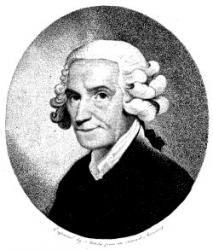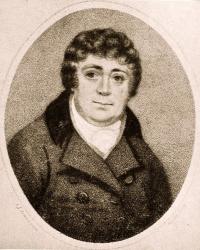Planning worship?
Check out our sister site, ZeteoSearch.org,
for 20+ additional resources related to your search.
- |
User Links
Person Results
Thomas Kelway
1695 - 1744 Person Name: T. Kelway Composer of "[It is a good thing to give thanks unto the Lord]" in The Church Service Book
Thomas Kelway
Edwin George Monk
1819 - 1900 Person Name: E. G. Monk Composer of "[It is a good thing to give thanks unto the Lord]" in The Church Service Book
Edwin George Monk
H. M. Higgs
1855 - 1929 Composer of "[It is a good thing to give thanks unto the Lord]" in The Church Service Book Henry Marcellus Higgs
H. M. Higgs
G. C. Bentinck
Person Name: Right Hon. G. C. Bentinck Composer of "[It is a good thing to give thanks unto the Lord]" in The Church Service Book
G. C. Bentinck
John Randall
1717 - 1799 Person Name: Dr. Randall Composer of "[It is a good thing to give thanks]" in The Hymnal, Revised and Enlarged, as adopted by the General Convention of the Protestant Episcopal Church in the United States of America in the year of our Lord 1892
John Randall
John Heywood
Person Name: J. Heywood Composer of "[It is a good thing to give thanks unto the Lord]" in The Hymnal of the Protestant Episcopal Church in the United States of America 1940
John Heywood
F. A. Gore Ouseley

1825 - 1889 Person Name: Rev. Sir F. A. G. Ouseley Composer of "[It is a good thing to give thanks]" in The Hymnal, Revised and Enlarged, as adopted by the General Convention of the Protestant Episcopal Church in the United States of America in the year of our Lord 1892 Born: August 12, 1825, London, England.
Died: April 6, 1889, Hereford, England.
Buried: Church of St. Michael and All Angels, Tenbury Wells, Hereford and Worcester, England.
Gore-Ouseley was educated at Oxford University (BA 1846, MA 1849, DMus 1854), and was ordained in 1849. In 1855, he was appointed Oxford Professor of Music, succeeding Henry Bishop. At that time, Oxford music degrees were easy to obtain, as there were no conditions of residence. Candidates only had to submit a musical composition, (e.g., for choir or orchestra). This was then approved by the examiner, rehearsed and performed to a small, select audience at Oxford. As far as Ouseley was concerned, this only meant two or three trips to Oxford each year, usually for two or three days each time, as there was no music "taught" in the university and very little in Oxford itself at the time.
Also in 1855, Ouseley was appointed Precentor of Hereford Cathedral, a post he held for the next 30 years, before becoming a Canon there. Although theoretically in charge of the cathedral choir, Ouseley only had to be in residence at the cathedral two months each year, and he arranged these to take place during the summer vacation, when he was not required to be at his College, although such was his commitment that he did make regular visits to the cathedral, which was only 18 miles from his College at St. Michael’s.
His College of St. Michael’s, Tenbury, a "model" choir school, opened in 1856, mostly at his own expense. He founded the College and was its first Warden, which was the greater part of his work for the next 33 years.
Ouseley’s compositions covered a wide range: operas, songs, chamber music and organ pieces. His works include the following treatises:
Harmony (London: 1868)
Counterpoint (London: 1869)
Canon and Fugue (London: 1869)
Form and General Composition (London: 1875)
--www.hymntime.com/tch/
F. A. Gore Ouseley
Richard Woodward
1743 - 1777 Person Name: R. Woodward Composer of "[It is a good thing to give thanks unto the Lord]" in Common Praise Woodward, Richard, jr; b. 1743?; d. Dublin, 22 Nov. 1777; Anglo-Irish organist and composer
LOC Name Authority File
Richard Woodward
James Nares

1715 - 1783 Person Name: J. Nares Composer of "[It is a good thing to give thanks] (Nares)" in The Church Hymnal Born: April 19, 1715, Stanwell, Middlesex, England.
Died: February 10, 1783.
Buried: St. Margaret’s, Westminster, England.
After his family moved to Oxford, Nares became a chorister in the Chapel Royal. He later became deputy organist at St. George’s Chapel, Windsor; organist in York Cathedral (1734); and organist in the Royal Chapel and composer to the king (1756). He received a doctorate of music degree from Cambridge University in 1756. In 1770, the Catch Club awarded him a prize for his glee To All Lovers of Harmony.
Sources:
Frost, p. 683
Nutter, p. 462
http://www.hymntime.com/tch/bio/n/a/r/nares_j.htm
====================
http://en.wikipedia.org/wiki/James_Nares
James Nares
Samuel Arnold

1740 - 1802 Person Name: Samuel Arnold, 1740-1802 Composer of "[It is a good thing to give thanks unto the Lord]" in Songs for the Chapel Dr. Samuel Arnold, an English musician and composer; born in London, Aug. 10, 1739; composed for the theatre, the church, and also oratorio music; succeeded Dr. Nares as organist; died at Westminster, Oct. 22, 1802.
A Dictionary of Musical Information by John W. Moore, Boston: Oliver, Ditson & Company, 1876
Samuel Arnold


 My Starred Hymns
My Starred Hymns

